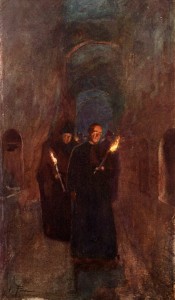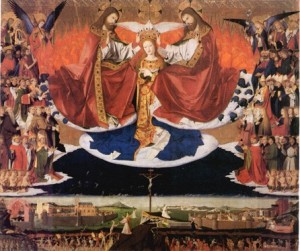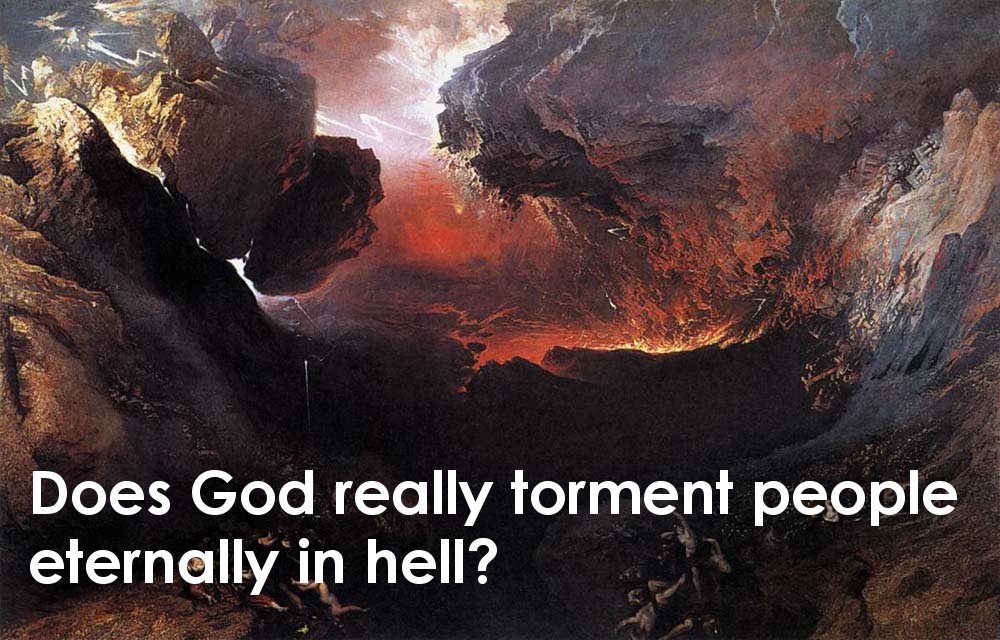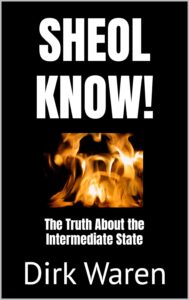Of the 31 chapters of the book of Proverbs, the first 29 were written by Solomon, the wisest person who’s ever lived outside of Jesus Christ (1 Kings 3:12). In Chapter Two of this study we saw how Solomon described the nature of Sheol in very clear language. He said that those who die “know nothing” (Ecclesiastes 9:5) because they’ve gone to Sheol, where “there is no work, or thought, or knowledge or wisdom” (Ecclesiastes 9:10).
Everything Solomon says about Sheol in the book of Proverbs is in complete harmony with this unmistakable description.
Sheol and Death: Synonymous
The following texts, for instance, reveal that Sheol is essentially synonymous with death because they go hand-in-hand. These first two verses poetically reference the wicked adulteress:
PROVERBS 5:5 (NRSV)
Her feet go down to death; her steps follow the path of Sheol.PROVERBS 7:27 (NRSV)
Her house is the way to Sheol, going down to the chambers of death.
These passages apply to those in covenant with God under Old Testament law. They declare a sobering fact: Those who choose to commit sexual immorality with an adulteress “follow the path of Sheol” or are on “the way to Sheol.” Proverbs 2:18 teaches the same thing. This is not to suggest that devout people during the Old Testament period didn’t go to Sheol when they eventually died because we know from numerous passages that they did; these verses simply reveal that adulterers will prematurely die. This was the penalty for adultery and other critical sexual sins under the Law of Moses (Leviticus 20:10-16).
Even today, despite the fact that we’re living during the New Testament era of grace, those who choose to live sexually immoral lifestyles often suffer serious consequences for their actions, including premature death from AIDS. Other consequences critically hamper the quality of one’s life—teenage pregnancy, illegitimate children, abortion, broken relationships, divorce, psychological problems, a multitude of sexual diseases—many of which are incurable—and other negatives, like the wrath of the mate of the person with whom one’s cheating. Truly, sexual immorality brings death. Even if it doesn’t literally kill you, it will certainly kill the quality of your life.
This next passage personalizes folly as a wicked woman and is referring to the foolish people who choose to follow “her”:
PROVERBS 9:18 (NRSV)
But they do not know that the dead are there [in Folly’s house], that her guests are in the depths of Sheol.
The 9th chapter of Proverbs showcases the personal invitations of Wisdom and Folly. Those who prudently enter the house of Wisdom will be rewarded with good, long lives (as verified by verses 11-12) while those who choose Folly will prematurely die.
Premature death is, of course, the gravest consequence of following folly with wild abandon. The graveyard is full of such people, so are the prisons and mental institutions. Those who merely dabble in folly here and there will suffer as well, just not as severely. This is the case even today in the age of grace.
Notice plainly in this text that those in Sheol are described as “dead,” not roasting alive in torment desperate for a drop of water to relieve them. Their sinful lifestyles resulted in their deaths because “the wages of sin is death” (Romans 6:23).
These next two passages equate Sheol with abaddon; abaddon is the Hebrew word for destruction:
PROVERBS 15:11 (NRSV)
Sheol and abaddon [destruction] lie open before the LORD, how much more human hearts!PROVERBS 27:20 (NRSV)
Sheol and abaddon [destruction] are never satisfied, and human eyes are never satisfied.
All I want to emphasize from these five proverbial passages is that Solomon repeatedly brings up Sheol and repeatedly associates it with death or destruction. This is not unique to Solomon or the book of Proverbs; here are some passages from past chapters that also equate Sheol with death:
PSALM 6:5 (NRSV)
For in death there is no remembrance of you; in Sheol who can give you praise?ISAIAH 18-19 (NRSV)
“For Sheol cannot thank you, death cannot praise you; those who go down to the Pit cannot hope for your faithfulness. (19) The living, the living, they thank you as I do this day.”PSALM 89:48 (NRSV)
Who can live and never see death? Who can escape the power of Sheol?
There are other biblical passages that identify Sheol with death and destruction as well, such as Job 26:6, Psalm 49:14, Hosea 13:14, Habakkuk 2:5, Revelation 6:8 and 20:14. Most of these passages consist of a form of biblical poetry known as synonymous parallelism where the second part of the verse simply repeats and enforces the thought of the first.
As you can plainly see, the God-breathed scriptures repeatedly equate Sheol with death and destruction, not conscious torture. These passages were written by a variety of godly men separated by many centuries – Job, David, the Korahites, Ethan, Solomon, Hezekiah, Habakuk and John; they all spoke in harmony concerning Sheol because they all “spoke from God as they were carried along by the Holy Spirit” (2 Peter 1:20-21). Do you think the LORD is trying to reveal something to us about the nature of Sheol in these many clear passages? Of course He is! Those who go to Sheol have suffered death, their lives have been destroyed. Death simply refers to the absence of life because it is, in fact, the opposite of life — the state of non-being or non-existence; it does not refer to a low-quality life separate from God as proven in Chapter Six of HELL KNOW, which you can read here. Living a life of misery in a subterranean torture chamber is, after all, still life, but that’s not what Sheol is. Biblically speaking, Sheol is the “world of the dead” where lifeless souls are held captive until their resurrection. They are dead and lack consciousness; they can therefore neither remember nor praise God. How much clearer could the LORD possibly be in his awesome Word?
“To Avoid Sheol Below”
Let’s look at another proverbial passage that mentions Sheol:
PROVERBS 15:24 (NRSV)
For the wise the path of life leads upward in order to avoid Sheol below.
This verse isn’t at all saying that wise people in Old Testament times (before the ascension of Christ) would go to heaven when they died. We must interpret Scripture in light of Scripture — a vital hermeneutical rule — and we know that during the Old Testament period both the wise and foolish alike went to Sheol when they died.
 The text is simply declaring that, under the law of Moses, living a wise, godly life would guarantee a person a long, blessed life in the “land of the living” and avoid a premature trip to Sheol. As Proverbs 4:18 puts it, “The path of the righteous is like the first gleam of dawn, shining ever brighter till the full light of day.” Although death or Sheol was indeed “the destiny of every man” during the Old Testament period (Ecclesiastes 7:2; Psalm 89:48), those who were wise by living according to godly wisdom would avoid Sheol as long as possible, enjoying a full, productive life.
The text is simply declaring that, under the law of Moses, living a wise, godly life would guarantee a person a long, blessed life in the “land of the living” and avoid a premature trip to Sheol. As Proverbs 4:18 puts it, “The path of the righteous is like the first gleam of dawn, shining ever brighter till the full light of day.” Although death or Sheol was indeed “the destiny of every man” during the Old Testament period (Ecclesiastes 7:2; Psalm 89:48), those who were wise by living according to godly wisdom would avoid Sheol as long as possible, enjoying a full, productive life.
Observe how the passage makes it clear that Sheol was something to be avoided as long as possible. This doesn’t jell with the belief that Sheol had a separate compartment called “paradise” where Old Testament saints enjoyed sweet fellowship in Father Abraham’s chest cavity far removed from their earthly troubles. If this were so, why would any godly person want to avoid it? Any righteous person would want to get there as soon as possible if this were true, right? This verse shows that this belief is unscriptural. Sheol is, in fact, the state of death. Those who go there are dead and therefore no longer exist. Their soulish remains are held there but their conscious life has expired because their animating breath of life has returned to God. Hence, Sheol is to be avoided, not looked forward to.
Sheol: “The Assembly of the Dead”
As noted in Chapter One, Greek & Hebrew scholar James Strong defines Sheol as “the world of the dead.” This corresponds to the biblical description as seen in this passage:
Whoever wanders from the way of understanding will rest in the assembly of the dead.
Proverbs 21:16 (NRSV)
A man who wanders from the way of understanding will rest in the assembly of the dead.
Proverbs 21:16 (NASB)
The International Standard Version translates this passage like so: “Whoever wanders from the path of understanding will end up where the dead are gathered.” Where are the dead gathered? In Sheol, “the assembly of the dead.”
Someone might argue that “the assembly of the dead” might refer to the physical grave or tomb where bodies are laid to rest, but there are a number of problems with this view: corpses are laid to rest in cemeteries all over the earth and some bodies aren’t buried at all, while others are lost at sea or blown to bits, etc. This could hardly be “the assembly of the dead.” The phrase, however, perfectly fits the biblical concept of Sheol, which is the graveyard of dead souls in the heart of the earth; truly the “assembly of the dead.” And please notice that the souls housed in Sheol are dead. They’re not living souls or half-living souls. They’re dead because Sheol is the realm of the dead.
“Deliver His Soul from Sheol”
The fact that Sheol is the “assembly of the dead” and, as such, should be avoided as long as possible makes sense of this proverb:
PROVERBS 23:13-14 (NASB)
Do not hold back discipline from the child, although you beat him with the rod, he will not die. (14) You shall beat him with the rod and deliver his soul from Sheol.
The passage is simply stressing the importance of godly, loving discipline. It is by no means advocating child abuse; only a wicked heart would entertain such a perverse interpretation. In Old Testament times everyone ultimately went to Sheol when they died, but by properly training a child to live in harmony with the laws of God, and hence acquire godly wisdom, it would guarantee the child a long, blessed life and keep him or her from the curse of premature death.
Let me use my own life as an example: I grew up in a home where there was almost zero proper parental discipline. I was consequently full of folly as I entered my teenage years because my parents failed to discipline it out of me, that is, beat it out of me.
NOTE: Proverbs 20:30 includes proper parental discipline when it states: “Blows and wounds cleanse away evil, and beatings purge the inmost being.”
This folly naturally resulted in a perpetual string of critical mishaps throughout my adolescence and young adult years. Some of these misfortunes included overdosing and almost dying on drugs, getting hit by a car and landing on my head resulting in a near-fatal head concussion, getting expelled from school for drugs, falling off a 37″ cliff during a “party” episode and ending up in a body cast for months, and almost successfully committing suicide. The fact that I survived those years is a miracle!
My point is that the folly I walked in was due to a lack of parental discipline and it almost resulted in my death on several occasions. So I know from experience how true this proverb is — if parents fail to drive-out folly in their children by proper discipline, folly will either severely hamper their lives or kill them.
By the age of 20 I was understandably starved for godly wisdom, discipline and truth! The LORD revealed Himself to me and I turned to Him in repentance through Christ. I slowly started to acquire wisdom through the study & application of His Word and the relational discipline of my Heavenly Father by the Holy Spirit. Here’s a fact: True love disciplines. Parents who fail to discipline their children are showing that they don’t really care or have the time for them. The truth is, I longed for true, loving discipline throughout my teen years but never received it; thankfully my Heavenly Father lovingly gave me the discipline I needed when I finally turned to Him.
Observe, incidentally, that the above proverb states that a child’s soul is saved from Sheol. This is further evidence that Sheol concerns the state of the human soul after physical death. It is not the housing abode of the spirit (i.e. the breath of life) or the physical body. The spirit of life returns to God who gave it and the body simply returns to the dust. See the appendix on human nature for details.
Sheol is Never Satisfied
This next proverb reveals that Sheol is never satisfied:
PROVERBS 27:20 (NASB)
Sheol and abaddon [destruction] are never satisfied, nor are the eyes of man ever satisfied.
Once again we see that Sheol is associated with destruction. As pointed out earlier in this chapter, Sheol is repeatedly equated with death and destruction in the Scriptures not conscious torment.
 Secondly, we observe that Sheol is “never satisfied” just as the eyes of man are never satisfied. What’s this mean? Concerning the latter, the desires of human nature are never satiated. People always have desires — good, bad and everything in between — and once these desires are obtained or satiated we desire even more, or something else entirely. It’s our nature as human beings; it’s how we’re wired. This is the nature of Sheol as well.
Secondly, we observe that Sheol is “never satisfied” just as the eyes of man are never satisfied. What’s this mean? Concerning the latter, the desires of human nature are never satiated. People always have desires — good, bad and everything in between — and once these desires are obtained or satiated we desire even more, or something else entirely. It’s our nature as human beings; it’s how we’re wired. This is the nature of Sheol as well.
How is Sheol never satisfied? Well, we’ve discovered in our study that Sheol refers to the place and condition all unredeemed souls enter after death; it is the holding place of captive souls, the graveyard of dead souls. Since unredeemed people continue to birth and die year after year, decade after decade, century after century, the “population” of Sheol naturally keeps growing.
For a natural comparison, consider earthly graveyards where bodies are buried. Graveyards remain active for “business” until they become full of bodies. They then become historical in nature. My wife was the office manager of a large burial park for many years. This graveyard has 58 acres of land that are developed for business. It has an additional 60 acres that are undeveloped. As the 58 developed acres become full they will have to expand by developing and utilizing the additional 60 acres. This particular burial park will never be “satisfied” until all 118 acres are full. Sheol, by contrast, has no limits to its “expansion” as unredeemed people continue birthing and dying century after century. It is in this sense that Sheol is never satisfied.
This next proverbial passage addresses the same point:
PROVERBS 30:15-16 (NASB)
There are three things that will not be satisfied. Four that will not say, “Enough”: Sheol, and the barren womb, earth that is never satisfied with water, and fire that never says, “Enough.”
Four things are listed here that are “never satisfied”: Sheol is never satisfied with its increasing population of dead souls, the barren womb is always ready to produce another child, the earth will always drink up more water, particularly dryer landscapes like Palestine, and fire always keeps devouring combustible matter. Yet, none of these four items are insatiable in an absolute sense: A womb can only produce so many babies in a lifetime, the earth can only take so much water before flooding starts, fire only destroys until it is extinguished one way or another. Just so, Sheol will one day stop receiving dead souls, and every lifeless soul resident there will be resurrected to face judgment; in fact, Sheol itself (i.e. “Hades”) will ultimately be thrown into the lake of fire, as shown in Revelation 20:11-15.


Joshua David La Russa
The inverse of this is that whoever does not wander away will NOT rest in the assembly of the dead. This is true NOW, but not for those back then. Unless he is referring to a premature death, like you stated earlier. I just don't want to read into or add to the word by assuming that this is what he is talking about. Thanks.
Dirk Waren
It’s an interesting point. Solomon was making a general statement of truth from his perspective under the Old Covenant. According to the terms of his covenant obedience was rewarded with long life whereas unrepentant disobedience resulted in premature death (Deuteronomy 28). As such, “those who wander from the way of understanding” would prematurely die; that is, go to Sheol, which is often true today as well. It’s essentially an Old Testament way of saying “The wages of sin is death” (Romans 6:23).
The unspoken inverse of the verse is also true, as you say. Not just today during the New Covenant, but in an eternal sense for all humankind, including those prior to the New Testament era. Although righteous individuals under the Old Covenant were promised a long life they would inevitably die and go to Sheol, as numerous passages cited in Sheol Know confirm (e.g. Psalm 88:3, 89:48, Ecclesiastes 9:10 & Genesis 37:35). Despite this, the Bible promises them the resurrection unto eternal life (e.g. Daniel 12:2-3 & John 5:29).